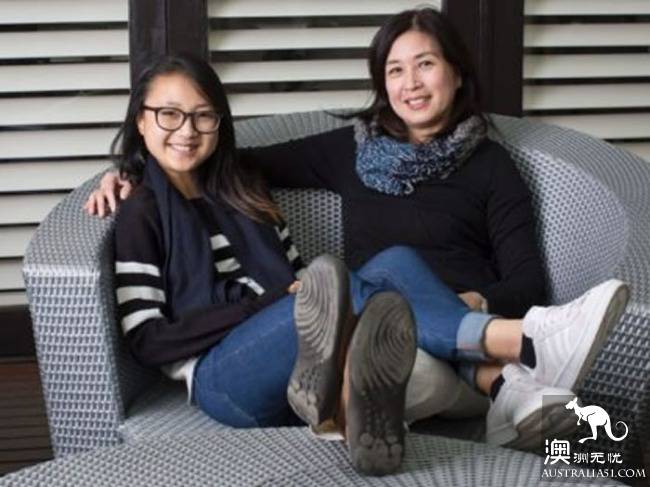When I was 18, I moved out of my parents` house in Singapore to study in the United States on the other side of the world.
"that was about 30 years ago, and we talked to our parents a few times a year."
Her 22-year-old daughter, Melanie Hoo, now studies at Monash University, is as independent as Hero used to be. But there is still a big difference between Hoo and mother. That`s that Hoo still lives at home, and probably for at least a year and a half.
"if the rent was cheap, I would have moved out, but it was too expensive," Hoo said.
Hoo is one of a growing number of young Australians who are starting to delay their departure. In most cases, this is because they can`t afford to live on their own.
According to the 2017 Australian Household, income and Labor Dynamics Survey, between 2001 and 2015, young people between the ages of 18 and 29 began increasingly choosing to stay at home. About 48.6 percent of women and 54.7 percent of men live at home, compared with 33.5 percent in 2001 and 45.5 percent in 2001.

In recent weeks, discussions about the best time for young people to move out of their parents` homes have been resuscitated. It follows reports that a 30-year-old American man has been indicted by his parents for not moving out of his home.
But Liz Allen, a demographer at the National University of Australia, says the older generation should not be too quick to criticize the younger generation for staying at home longer.
"parents will say, `what did I do when I was your age`?`I had a second child when I was your age, and you haven`t left home`. But you know, times are different. "
Young people lack safety at work, wage growth is low, and housing costs continue to rise, she said, which is why young people stay at home longer.
"in addition to intergenerational inequality, the problem also has the impact of social change," Allen said.
Although she was happy that her daughter could stay at home during college, she also began to consider letting her move out when she got her degree.
"I won`t encourage her to stay with us for too long, and eventually they`ll have to learn to grow up and be responsible for themselves."
Anne Hollonds, director of the Australian Family Research Institute, said that as long as children contribute to the family, parents usually don`t mind living at home for adult children.
"now the two generations live together different from what they used to be. There are fewer generation gaps, and there may be better relationships. "
Hoo doesn`t pay for anything, but Hero is not worried about it, she said, preferring her daughter to save more money now so she can move out more comfortably one day.
According to a recent finder.com.au survey of 2085 Australians, 80 percent of respondents said adult children should pay for board and lodging, and they believe Australian children should start paying board and board fees from the age of 19.
Parents should not set an age limit for board and lodging fees for their children, Hollonds said. They should otherwise allow their children to contribute to their home from an early age. "if they cook for themselves, shop for themselves, or clean themselves, they are more confident of living on their own."

